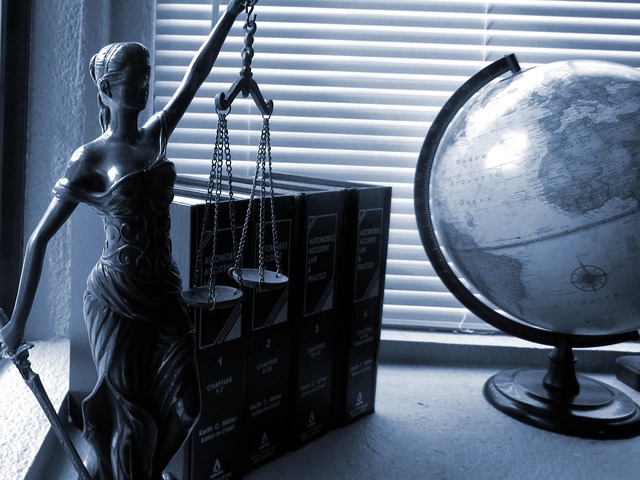Mail wire fraud schemes, using deceptive emails and texts, target personal information under false pretenses. Protection involves understanding these scams and hiring a specialized consumer protection lawyer to avoid indictment and secure justice. Consumer protection laws combat such frauds, and these lawyers navigate complex cases, offering strategic guidance and advocacy. Hiring them is crucial after mail wire fraud accusations, preserving evidence, reporting to law enforcement, and mitigating charges or seeking compensation.
Mail wire fraud has become an increasingly common online scam, leaving many individuals vulnerable. This article aims to demystify these fraudulent schemes, providing insights into how they operate and who they target. We’ll explore consumer protection laws designed to safeguard you and discuss the significance of early action when facing such frauds. If you suspect you’re a victim, understanding when to hire a lawyer specialized in consumer protection cases can be pivotal for justice and recovery.
- Understanding Mail Wire Fraud Schemes
- The Role of Consumer Protection Laws
- When to Hire a Lawyer for Mail Wire Fraud
- Steps After Reporting Mail Wire Fraud
Understanding Mail Wire Fraud Schemes
Mail wire fraud schemes have become increasingly sophisticated, leveraging technology to dupe victims out of their hard-earned money. These scams often involve deceptive emails or text messages that appear to come from legitimate sources, such as banks or government agencies. The message typically urgingly requests personal and financial information, promising a reward or threatening consequences if immediate action isn’t taken. Once the victim provides their details, criminals use this information for identity theft, financial fraud, or even ransomware attacks.
Understanding these schemes is the first step in protecting oneself. If you suspect you’ve been targeted by mail wire fraud, hiring a lawyer specializing in consumer protection cases can be invaluable. They have an unprecedented track record in navigating all stages of the investigative and enforcement process, helping to avoid indictment and secure justice for victims. Remember, staying informed and vigilant is key to avoiding becoming a victim of these evolving scams.
The Role of Consumer Protection Laws
Consumer protection laws play a pivotal role in safeguarding individuals from deceptive practices and ensuring fair transactions. These legal frameworks are designed to protect consumers’ rights, provide remedies for violations, and promote ethical business conduct. When it comes to mail wire frauds, which often involve intricate financial schemes, these laws become even more critical. They empower consumers to take legal action against perpetrators and seek justice.
In cases of white-collar and economic crimes, including mail wire fraud, hiring a lawyer specializing in consumer protection cases is a strategic move. Legal experts in this field can navigate the complexities of such crimes, which often span across state and international borders. Their expertise lies in helping both corporate and individual clients achieve a complete dismissal of all charges or negotiate favorable outcomes. This specialized knowledge ensures that victims’ rights are protected and that they receive fair compensation for any financial losses incurred due to fraudulent activities.
When to Hire a Lawyer for Mail Wire Fraud
When facing mail wire fraud accusations or considering whether to take legal action, hiring a lawyer for consumer protection cases is often a pivotal decision. Such cases can be complex and highly regulated, with severe penalties attached to wrongful convictions. Legal professionals specializing in this area are equipped to navigate the intricacies of postal and financial regulations, ensuring your rights are protected. They can provide invaluable guidance on when to act, helping you discern between minor infractions that may resolve without legal intervention and high-stakes cases that demand immediate attention.
For individuals or corporate entities entangled in consumer protection matters, enlisting the aid of a lawyer is strategic. These legal experts understand the dynamics of both philanthropic and political communities, where mail wire fraud can disproportionately impact. They have experience handling a wide range of client profiles, from small businesses to multinational corporations, tailoring their approach to meet the specific needs of each case. By employing a lawyer for consumer protection cases, you gain an advocate who will champion your interests, enabling you to focus on resolving the matter while ensuring compliance with legal frameworks.
Steps After Reporting Mail Wire Fraud
After reporting mail wire fraud, the first step is to preserve any evidence related to the incident. This includes keeping all emails, text messages, and financial records that could serve as proof of the crime. Next, it’s crucial to contact your local law enforcement agency to file an official report, which will help in the investigation process. Additionally, hiring a lawyer specializing in consumer protection cases is highly recommended. They can guide you through the legal system, protect your rights, and ensure that justice is served.
A skilled attorney with experience in white-collar defense can help mitigate potential charges and seek compensation for any financial losses incurred. For his clients facing mail wire fraud, having a dedicated advocate ensures that every step is taken to resolve the issue effectively. This may involve negotiating with fraudulent entities or taking legal action against those responsible.
Mail wire fraud can have devastating effects on individuals and businesses alike, making it crucial to understand and protect against these schemes. By recognizing the signs of fraudulent activities and understanding consumer protection laws, you can take proactive measures to safeguard your interests. If you suspect or have fallen victim to mail wire fraud, timely action is key. Hiring a lawyer specializing in consumer protection cases can provide invaluable assistance in navigating legal options, recovering losses, and ensuring justice. Don’t hesitate to reach out for help; with the right support, you can overcome these challenges and protect yourself from future financial crimes.






